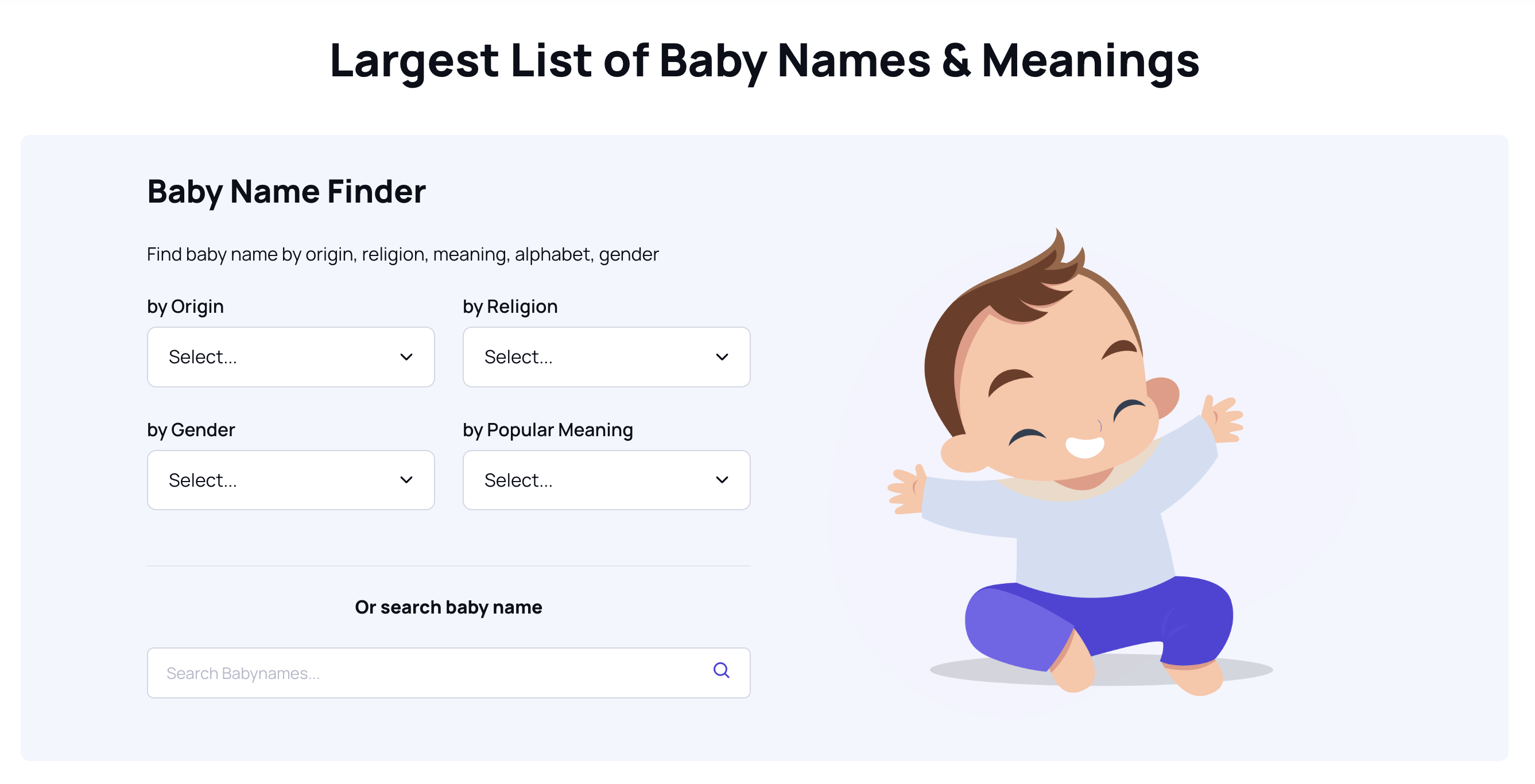Are you looking for modern English baby names based on their rich historical background? Some names often remind us of knights and castles, royal ancestry, and, more recently, Harry Potter. In olden times, flowers usually inspired parents, resulting in names such as Rose, Violet, and Holly. Important Places and geographical features also became an important source for British parents to think of names like River, Devon, or Brooks. Meanwhile, profession-based names such as Mason, Barber, and Carter are popular today.
People prefer modern English Baby names
Despite having a penchant for old English names, parents now usually choose modern English baby names for their newborns. They are adopting popular names from Western culture. They are also borrowing names from the Germanic and Latin languages that often do not have a direct relationship to their meaning. For example, many old English baby names were derived from two words, like William, which came from Will and Helmet, or Radegund.
Recently, the Bible, virtues, and past royals have influenced baby names. Middle names are also very common, and several babies in England have more than one name. However, such names are often reflective of a favorite family member. However, no one can deny the importance of names given by parents because that name will always be known to children throughout their lives.
The Popularity of a Baby Name Generator
We had come a long way since earlier days when parents brainstormed and consulted their family and friends to find unique names for their children. We live in the digital age, where you can get solutions for everything. So, now parents can take help from a baby name generator to find a suitable name for their son or daughter. You can easily click on a name to find its meaning, popularity, origin, and other useful information.
Do Names Make a Difference?
It’s a welcome change from the past, when parents spent hours poring over baby name books, thinking that their choice of name would have a major impact on their child’s life. But is it true that names make a difference? There were many studies carried out that put this idea under the microscope. Choosing English baby names for children is a complicated process. There are many factors that parents need to consider. For instance, it should sound right with the family name and future nicknames, both good and bad. Sometimes a name is given to honor a favorite grandparent, but it may also involve a forgotten meaning to be unearthed in books. Moreover, if there are any dubious modern associations, that also needs to be checked on Google.
History of English Baby Names
Till the 18th Century, it was normal for parents to address their children by multiple names – for example, two Johns for different grandfathers. However, now parents increasingly look for unique modern English baby names or spellings of names. Jean Twenge pointed out this fact in her book, The Narcissism Epidemic. Hence, Jasmine now faces competition from names such as Jazmine, Jazzmin, Jazmyne, Jasmina, Jazmyn, Jasmin, Jazzmine, and Jasmyn.
Since English baby names have increasingly become a matter of personal choice rather than tradition, they reveal more about the people who choose them. You can find a perfect example of this trend in the growing ease with which one can guess whether a person in the US is black or white. Roland Fryer and Steven Levitt pointed out that in California, in the years running up to 2003, almost 40% of black girls were given names that weren’t adopted, even by a single white girl in the state.
Preference for White names
The consequences of this clear division of class and race are striking. According to a study in 2003, names like Emily and Greg are more employable than Lakisha and Jamal. Marianne Bertrand sent more than 5,000 resumes in response to job advertisements in Chicago and Boston newspapers. All CVs were identical, but half were given fake names that sounded more like conventional white people, like Emily Walsh or Greg Baker. In contrast, the other half were given names that sounded more like African Americans, like Lakisha Washington or Jamal Jones.
It was found that the call-back rate from employers was 50% higher for the “white” names than the “black” names. Federal contractors noted the incident as framing “affirmative action” policies. At the same time, it also exposed companies that boasted of giving equal opportunities to everyone.
Racial Prejudice against Black Names
The researchers thus concluded that employers were using first names to discriminate unfairly against black candidates, perhaps unconsciously. There were also apprehensions that such prejudices might also come into play at the interview stage. There is also enough evidence to suggest that English baby names trigger different outcomes for schoolchildren. A researcher named David Figlio from Northwestern University analyzed scores of more than 50,000 schoolchildren. Without distinguishing between “white” and “black” names, he codified why certain names were more likely to belong to black children from low-income families.
He created a sliding scale from Drew to Dwayne to Damascus to Da’Quan. Figlio also discovered that the further along this scale he went, the worse the test scores and the less likely the student was to refer to the special program for “gifted” students. Unfortunately, this was also true for siblings within a family and even for twins. Figlio concluded that the fault lies with the expectations of teachers and administrators. However, the effects were less marked in schools with more black teachers. In another research, Figlio found that black boys with names more common among girls are likelier to have behavioral problems when they reach puberty.


